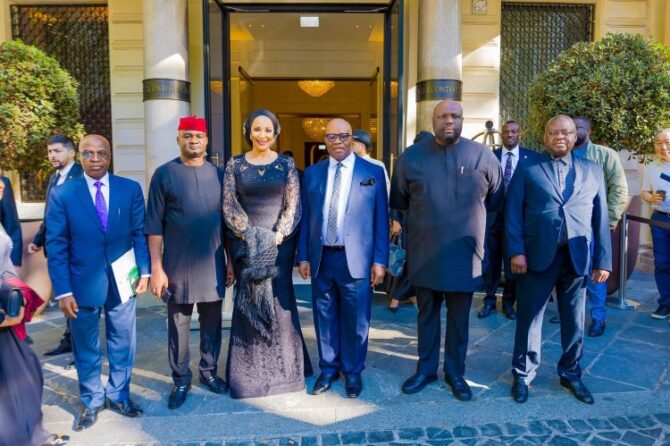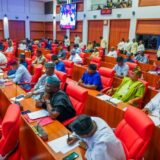Lawmaker Ali Ndume Supports Import Restriction of Foreign Goods to Boost Local Economy
Abuja, May 6, 2025 – Senator Ali Ndume, representing Borno South, has expressed strong support for President Bola Tinubu’s recent directive banning the importation of foreign goods that can be produced locally. Ndume described the policy as a bold and necessary move to empower indigenous businesses, create jobs, and revitalize Nigeria’s struggling economy.
Presidential Directive and Policy Details
The import restriction was announced by the Minister of Information and National Orientation, Mohammed Idris, following the Federal Executive Council (FEC) meeting on Monday. The directive requires all federal ministries, departments, and agencies to prioritize Nigerian-made goods, services, and expertise in their procurement and spending.
Additionally, the federal government has restricted the employment of expatriates for jobs that local contractors and artisans can competently perform, unless there is a compelling justification and explicit approval from the Bureau of Public Procurement (BPP).
This policy forms part of the broader Renewed Hope Nigeria First framework aimed at strengthening domestic production and promoting local content.
Ndume’s Endorsement and Economic Implications
In a statement issued Tuesday in Abuja, Senator Ndume hailed the ban as a “bold decision” that will significantly boost indigenous businesses amid economic challenges.
“It is heartwarming to hear that President Tinubu has taken this bold decision to ban imported goods that can be produced locally,” Ndume said. “This will be a major boost for indigenous businesses amid the slipping Nigerian economy.”
He emphasized that if implemented faithfully, the ban would protect local manufacturers from being overwhelmed by cheaper and often substandard imported goods flooding the market.
“With protection of local industries, there will be employment opportunities for our youths,” Ndume added. “The measure will also boost our Gross Domestic Product (GDP), and the value of the naira will appreciate as there will be less strain on our foreign reserves due to reduced demand for foreign exchange.”
Ndume further recommended that the Federal Government impose heavy taxes on certain foreign goods to discourage their consumption and encourage patronage of locally made products.
Insight: Economic Rationale, Challenges, and International Reactions
President Tinubu’s Renewed Hope Nigeria First Policy aims to reduce Nigeria’s dependence on imports by prioritizing local production and expertise in government procurement. Senator Ndume and other proponents argue that this approach will:
- Protect local manufacturers from unfair competition.
- Create jobs, especially for Nigerian youths.
- Strengthen the naira by reducing foreign exchange outflows.
- Increase GDP through stimulated industrial growth.
However, the policy has sparked concerns internationally. The United States Trade Representative (USTR) has criticized Nigeria’s ban on 25 product categories-including agricultural products, pharmaceuticals, and consumer goods-as a significant trade barrier that limits market access for American exporters. In response, the U.S. has increased tariffs on Nigerian imports, escalating trade tensions.
Domestically, experts warn that import bans can lead to higher prices, reduced product variety, smuggling, and black market activities. Poor households may face increased costs for basic goods, and government revenue from import duties could decline due to evasion.
Effective enforcement remains a challenge, as Nigeria has historically struggled with smuggling and loopholes undermining import restrictions. The government will need to balance protectionist policies with support for local industries and safeguards for consumers.
Context and Next Steps
Minister Idris described the import ban as a landmark policy designed to revitalize Nigeria’s domestic economy and enhance local content. The government’s move also restricts expatriate employment in sectors where Nigerians have capacity, aiming to increase local participation and job creation.
Senator Ndume’s support underscores the political will behind the initiative, but its success will depend on rigorous implementation, addressing international trade concerns, and ensuring that the benefits reach Nigerian businesses and consumers alike.

















